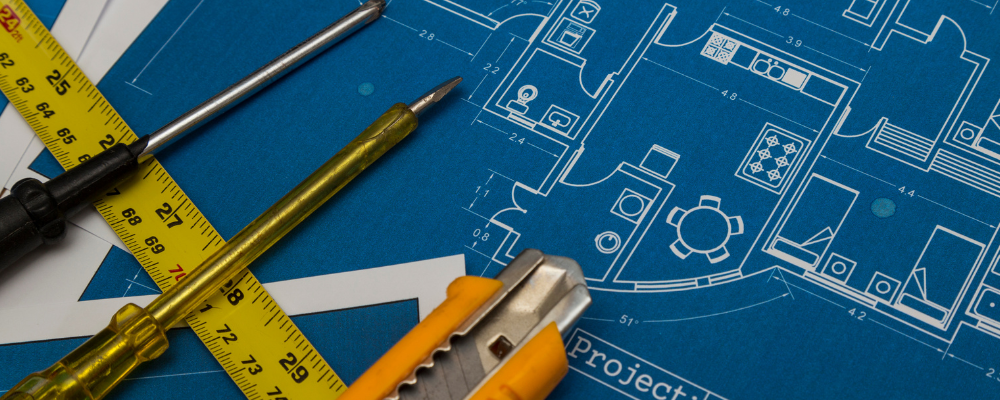Construction Loans: Your Key to Transforming Property Visions into Reality
Table of Contents
Toggle
When it comes to real estate, most people immediately think of traditional mortgages for purchasing a home. However, if your dream is to build a property from the ground up—or to make substantial renovations—conventional loans may not be the right fit. This is where construction loans step in. These specialized financial products are designed to provide funding for building, renovating, or expanding real estate projects. Whether you are an individual planning your dream home or a developer embarking on a larger project, construction loans can be the bridge between your vision and reality.
What Are Construction Loans?
A construction loan is a short-term, high-interest loan that provides funds specifically for the building or renovation of a property. Unlike a traditional mortgage, which is disbursed as a lump sum to purchase an existing property, construction loans are usually distributed in stages—commonly known as “draws”—that align with different phases of the construction process.
For example, funds might be released after completing the foundation, framing, roofing, and final inspections. This system ensures that money is used as planned and that the project stays on track. Once construction is completed, many borrowers refinance the construction loan into a long-term mortgage, often referred to as a “construction-to-permanent” loan.
Why Choose a Construction Loan?
- Tailored for Building Projects
Unlike traditional financing, construction loans are built with flexibility in mind. They cover expenses such as land purchase, materials, labor, permits, and even contingency costs for unexpected challenges. - Interest-Only Payments During Construction
Borrowers usually pay interest only on the amount disbursed during the building phase. This helps manage cash flow while the property is not yet generating income or serving as a residence. - Quality Control and Oversight
Since lenders disburse funds in stages, they often conduct inspections to ensure work is progressing as planned. This oversight can help maintain quality and accountability throughout the project. - Potential for Customization
A construction loan allows you to build a property tailored to your specific needs rather than settling for what’s available on the market.
Types of Construction Loans
Not all construction loans are the same. Understanding the main types can help you choose the best option for your project:
- Construction-to-Permanent Loan
This combines the initial construction financing with a permanent mortgage once the project is complete. It saves borrowers from paying two sets of closing costs and simplifies the process. - Construction-Only Loan
A short-term loan that covers only the construction phase. Once the project is done, the borrower must refinance into a permanent mortgage. This option can be more expensive but offers flexibility if you want to shop around for mortgage lenders later. - Owner-Builder Loan
Designed for borrowers who act as their own general contractor. However, these are more difficult to qualify for since lenders see them as riskier unless the borrower has professional building experience. - Renovation Loan
Ideal for those who want to finance major home improvements or expansions. It can cover everything from kitchen remodels to large-scale additions. - End Loan
This is a traditional mortgage that replaces a construction loan once the project is completed. It’s typically used when construction-only financing was chosen.
Eligibility and Requirements
Since construction loans involve higher risk than traditional mortgages, lenders impose stricter requirements. Borrowers typically need:
- Strong Credit Score: Usually 680 or higher.
- Detailed Construction Plans: A well-documented blueprint and timeline approved by a licensed builder.
- Down Payment: Typically 20–25% of the total project cost.
- Proof of Income and Assets: Lenders want assurance that you can afford payments.
- Builder Qualifications: Lenders often require working with licensed, insured, and experienced contractors.
The Application Process
Applying for a construction loan is more complex than securing a standard mortgage. Here’s what to expect:
- Submit Plans and Budget: Provide detailed blueprints, a timeline, and a cost estimate.
- Appraisal: Lenders will assess the projected value of the finished property.
- Loan Approval: If approved, funds will be set aside and disbursed in draws.
- Inspections: Before each draw is released, lenders usually inspect the construction progress.
- Transition to Permanent Loan: If you opt for a construction-to-permanent loan, it automatically converts to a mortgage once the project is finished.
Challenges to Consider
While construction loans can be incredibly valuable, they aren’t without challenges:
- Higher Interest Rates: Rates are usually higher than standard mortgages due to added risk.
- Stringent Requirements: Qualifying can be difficult, especially for first-time borrowers.
- Market Risks: Rising material costs or delays can push the budget higher than expected.
- Short Terms: Since these loans are temporary, refinancing or converting to a mortgage is often required quickly.
Tips for Success
- Work with Experienced Builders: Lenders are more likely to approve projects backed by reputable contractors.
- Plan for Contingencies: Set aside at least 10–15% of your budget for unexpected costs.
- Stay Organized: Keep all permits, plans, and receipts accessible to streamline inspections.
- Communicate with Your Lender: Regular updates build trust and prevent funding delays.
Conclusion
A construction loan is more than just financing—it’s a tool that empowers you to bring your property vision to life. From custom dream homes to large-scale renovations, these loans provide the structure and oversight needed to transform blueprints into livable, functional spaces. While they come with higher risks and stricter requirements than traditional mortgages, the benefits—flexibility, customization, and progress-based funding—make them an essential option for anyone committed to building their future.With careful planning, the right lender, and a clear vision, construction loans can be the key that unlocks your path to creating a property that truly reflects your needs, style, and goals.
